The 10 Cheapest Warren Buffett Stocks

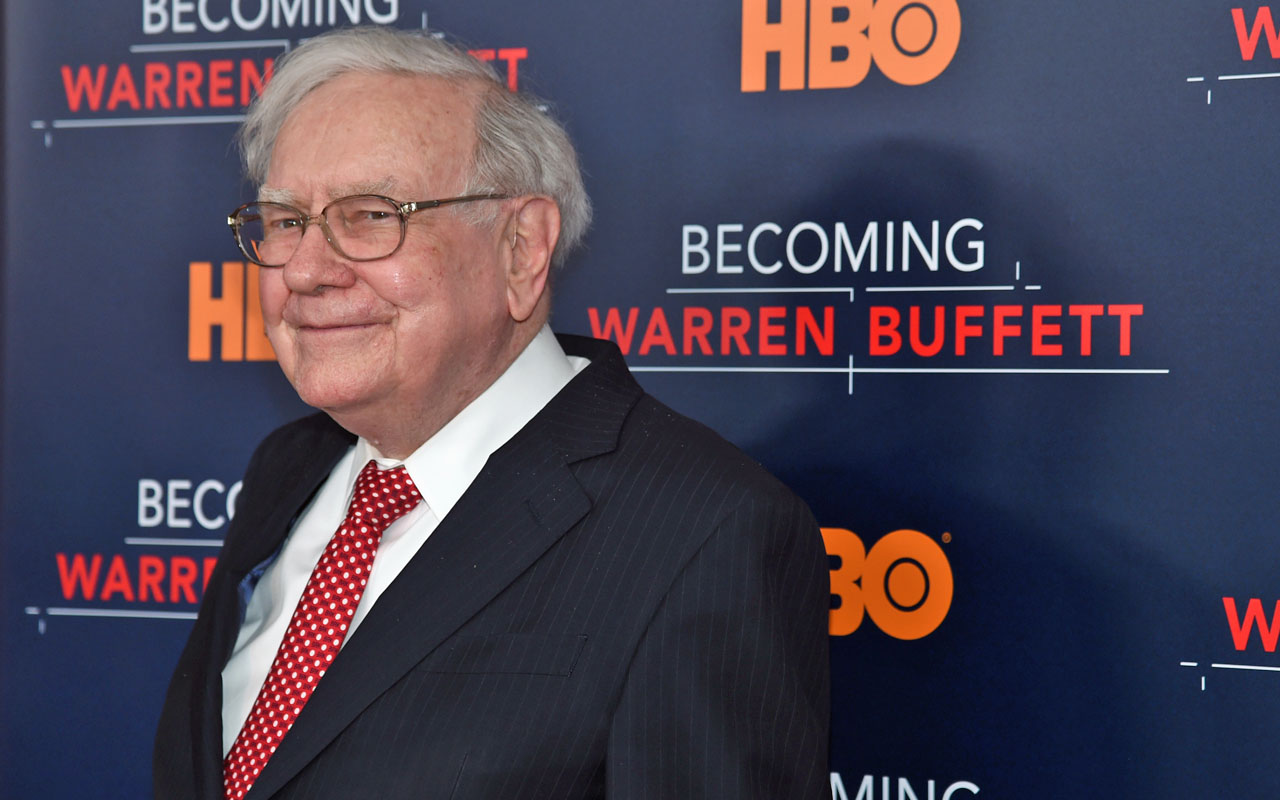
Profit and prosper with the best of Kiplinger's advice on investing, taxes, retirement, personal finance and much more. Delivered daily. Enter your email in the box and click Sign Me Up.
You are now subscribed
Your newsletter sign-up was successful
Want to add more newsletters?

Delivered daily
Kiplinger Today
Profit and prosper with the best of Kiplinger's advice on investing, taxes, retirement, personal finance and much more delivered daily. Smart money moves start here.

Sent five days a week
Kiplinger A Step Ahead
Get practical help to make better financial decisions in your everyday life, from spending to savings on top deals.

Delivered daily
Kiplinger Closing Bell
Get today's biggest financial and investing headlines delivered to your inbox every day the U.S. stock market is open.

Sent twice a week
Kiplinger Adviser Intel
Financial pros across the country share best practices and fresh tactics to preserve and grow your wealth.

Delivered weekly
Kiplinger Tax Tips
Trim your federal and state tax bills with practical tax-planning and tax-cutting strategies.

Sent twice a week
Kiplinger Retirement Tips
Your twice-a-week guide to planning and enjoying a financially secure and richly rewarding retirement

Sent bimonthly.
Kiplinger Adviser Angle
Insights for advisers, wealth managers and other financial professionals.

Sent twice a week
Kiplinger Investing Weekly
Your twice-a-week roundup of promising stocks, funds, companies and industries you should consider, ones you should avoid, and why.

Sent weekly for six weeks
Kiplinger Invest for Retirement
Your step-by-step six-part series on how to invest for retirement, from devising a successful strategy to exactly which investments to choose.
Warren Buffett, chairman and CEO of Berkshire Hathaway (BRK.B), is renowned for his ability to find bargains, but with markets at record highs, cheap stocks are getting tougher and tougher to find.
That’s true even within Berkshire Hathaway's own portfolio.
Indeed, several Buffett stocks have gained some froth of their own. Many, however, still look plenty cheap for new money. After looking at where shares trade relative to expected earnings, in comparison to their own historical valuations, and vs. the Standard & Poor’s 500-stock index, numerous Berkshire Hathaway holdings still appear downright cheap.
We sorted through all 48 stocks in the Berkshire portfolio to find the biggest bargains left standing after the market’s amazing run so far in 2019. Here are the cheapest Warren Buffett stocks right now.
Data is as of July 17. Forward price-to-earnings ratios are from Refinitiv. Five-year average P/Es are from StockReports+ from Refinitiv. Dividend yields are calculated by annualizing the most recent quarterly payout and dividing by the share price. Stocks are listed by forward P/E, from highest to lowest.
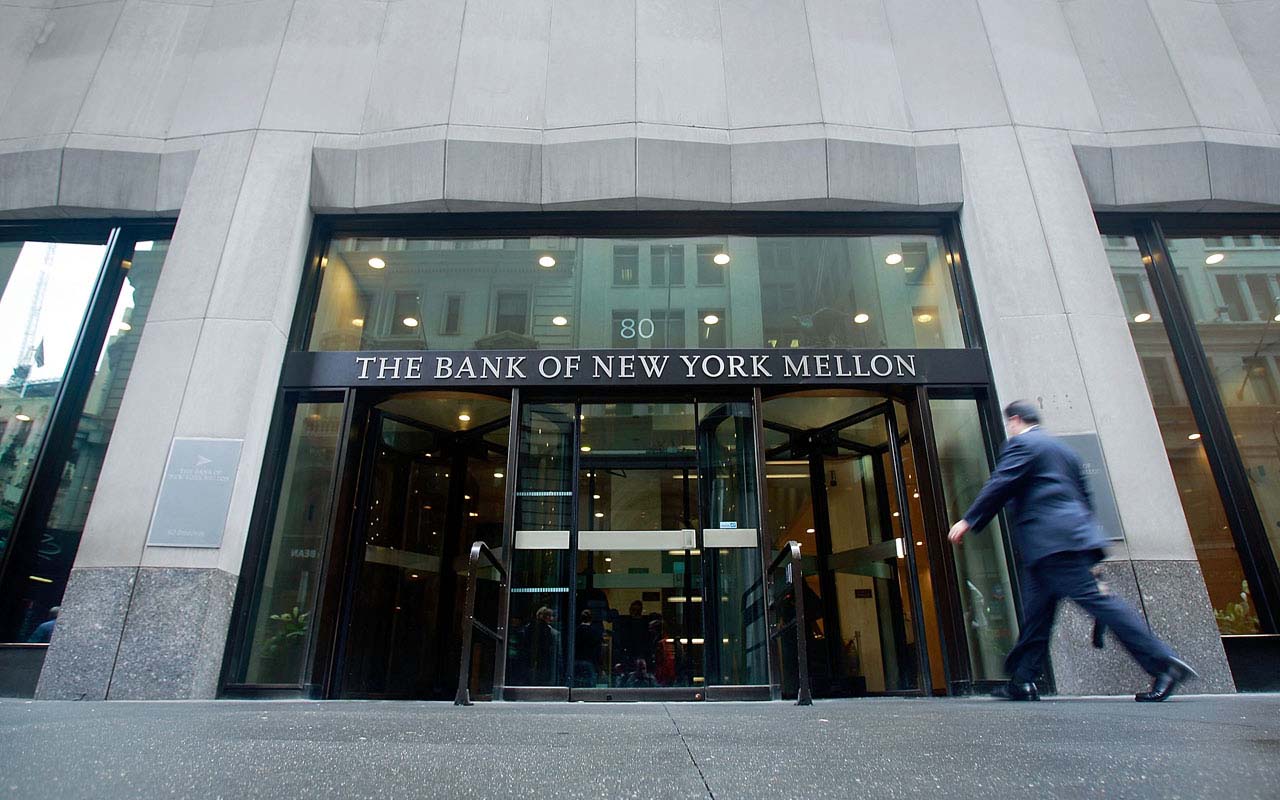
Bank of New York Mellon
- Dividend yield: 2.6%
- Forward price-to-earnings ratio (P/E): 10.4
Warren Buffett’s stocks have been increasingly peppered with banks over the past several quarters, but his interest in Bank of New York Mellon (BK, $44.12) dates back to 2010 and the early innings of the current economic expansion.
Financial-sector stocks were generally cheap in the aftermath of the financial crisis. BK remains attractively priced to this day. Trading at just 10.4 times expected earnings, shares offer a discount of 23% to their own five-year average price-to-earnings ratio, according to data from StockReports+ from Refinitiv.
But wait, there’s more. BK is almost 40% less expensive than the S&P 500 on an expected-earnings basis. (The S&P 500 currently goes for 17.2 times projected earnings, according to Refinitiv.)
Warren Buffett last added to his BK stake in the fourth quarter of 2018 when he increased Berkshire Hathaway’s investment by 3%, or more than 3 million shares. With a total of 80.9 million shares, BRK.B owns 8.5% of all shares outstanding, making it BK’s largest investor by a decent margin, according to data from S&P Global Market Intelligence. (Vanguard is No. 2 at 6.8%.)
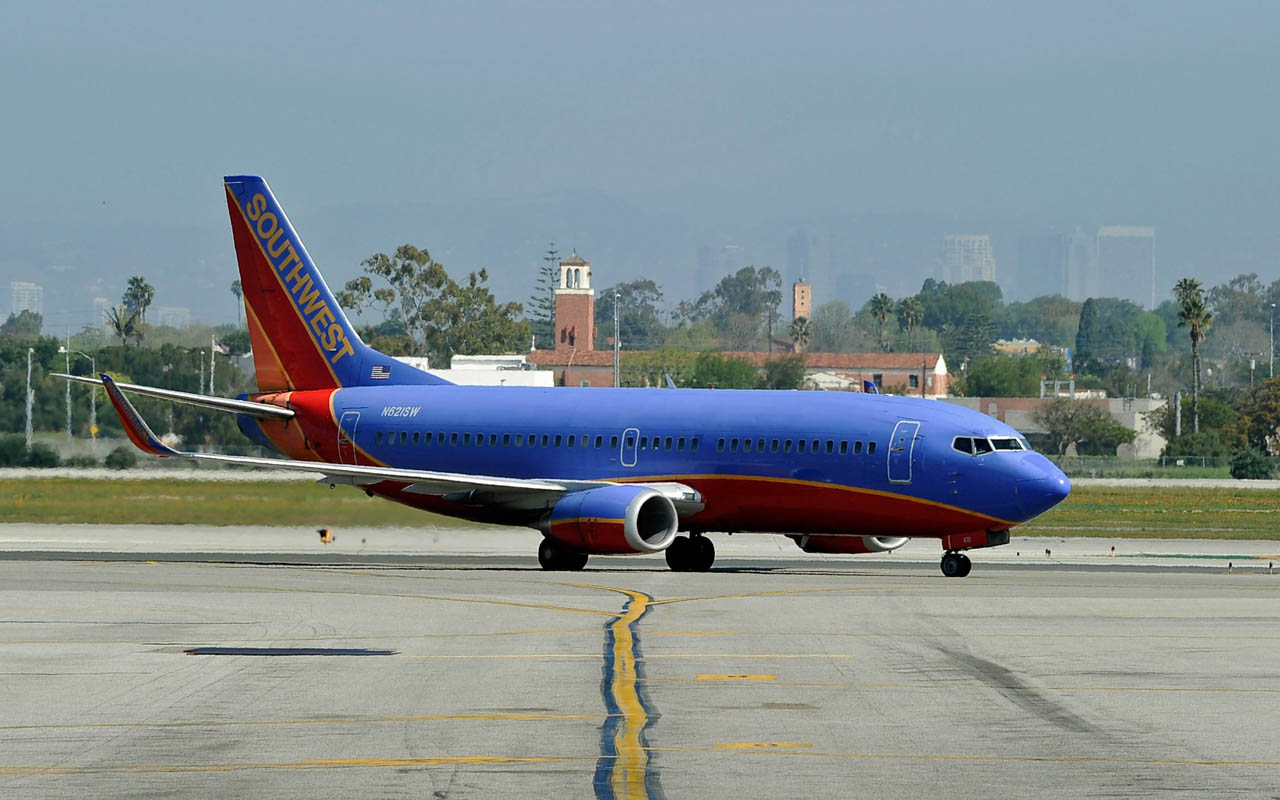
Southwest Airlines
- Dividend yield: 1.4%
- Forward P/E: 10.0
Warren Buffett caused something of a stir back in 2016 when he bought a quartet of airline stocks. The Oracle had long been an outspoken critic of the air-carrier industry, but times change. After a terrible 20th century, Buffett says he likes what airlines have to offer in the 21st.
- Southwest Airlines (LUV, $52.30) is a prime example. The discount carrier is beloved by its customers and employees alike, typically finding itself near the top of “Best Airline” and “Best Places to Work For” lists.
Its shares also happen to be something of a bargain.
LUV trades at nearly a 19% discount to its own five-year average forward P/E ratio. It’s 42% cheaper than the S&P 500 based on expected earnings. And yet analysts see considerable profit growth ahead for this Buffett stock. The carrier is forecast to generate average annual earnings increases of 12.5% over the next five years, according to Refinitiv data.
Berkshire Hathaway is Southwest Airlines second-largest shareholder, too, with 9.9% of the company’s shares outstanding, according to data from S&P Global Market Intelligence.
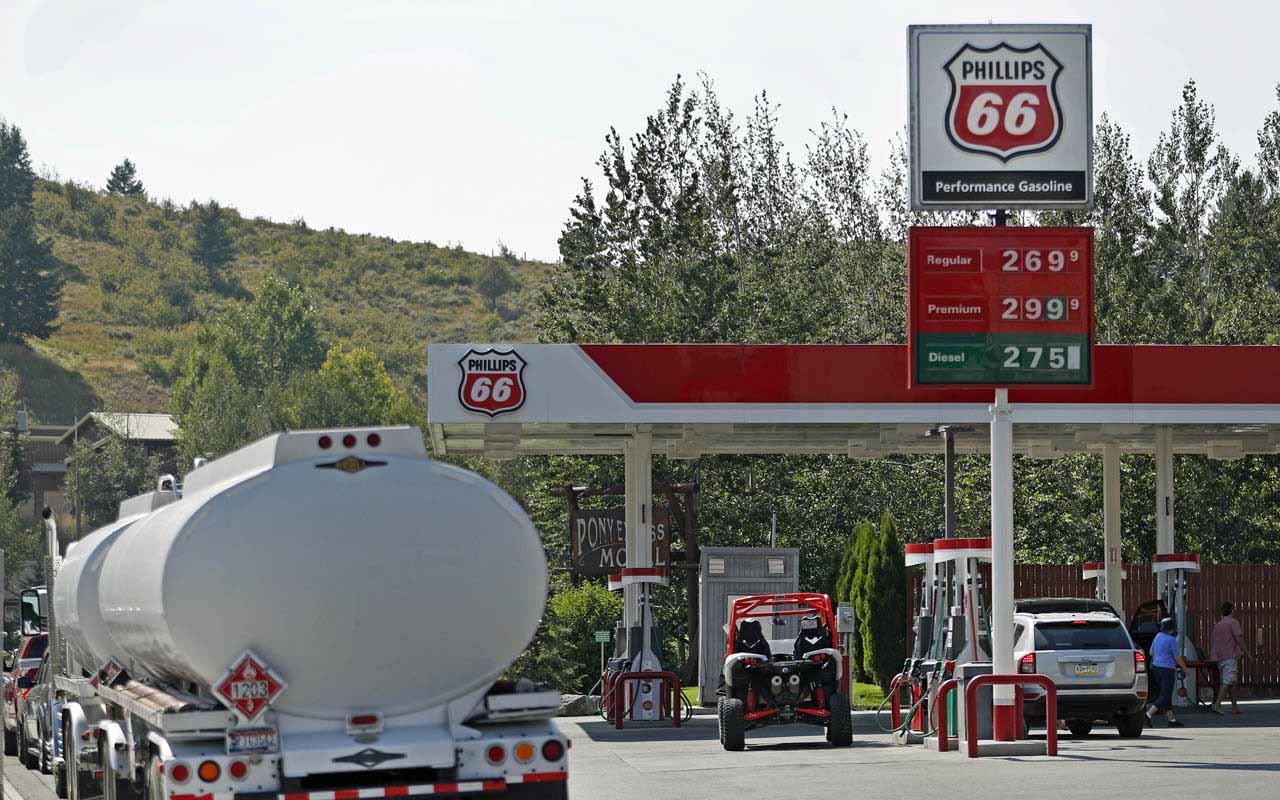
Phillips 66
- Dividend yield: 3.6%
- Forward P/E: 9.7
- Phillips 66 (PSX, $100.79) offers a generous dividend yield and a bargain-priced stock, but Warren Buffett has been gradually pulling up stakes in the oil-and-gas company.
Buffett first bought shares in the oil and gas company in 2012. But despite having heaped praise on PSX in the past, Buffett has dramatically reduced his stake over the past year. Buffett has been characteristically mum on his reasons for the sales. Still, Berkshire retains 1.2% ownership of all Phillips 66 common shares outstanding.
That doesn’t mean Phillips 66 isn’t a good fit for a diversified portfolio, especially one lacking in cheap energy-sector stocks. With shares changing hands at just 9.7 times projected earnings, PSX offers a 29% discount to its own five-year average forward price-to-earnings multiple. It’s a whopping 44% cheaper than the S&P 500.
Of the 18 analysts covering PSX tracked by Refinitiv, seven say it’s a Strong Buy, six have it at Buy and five call it a Hold.
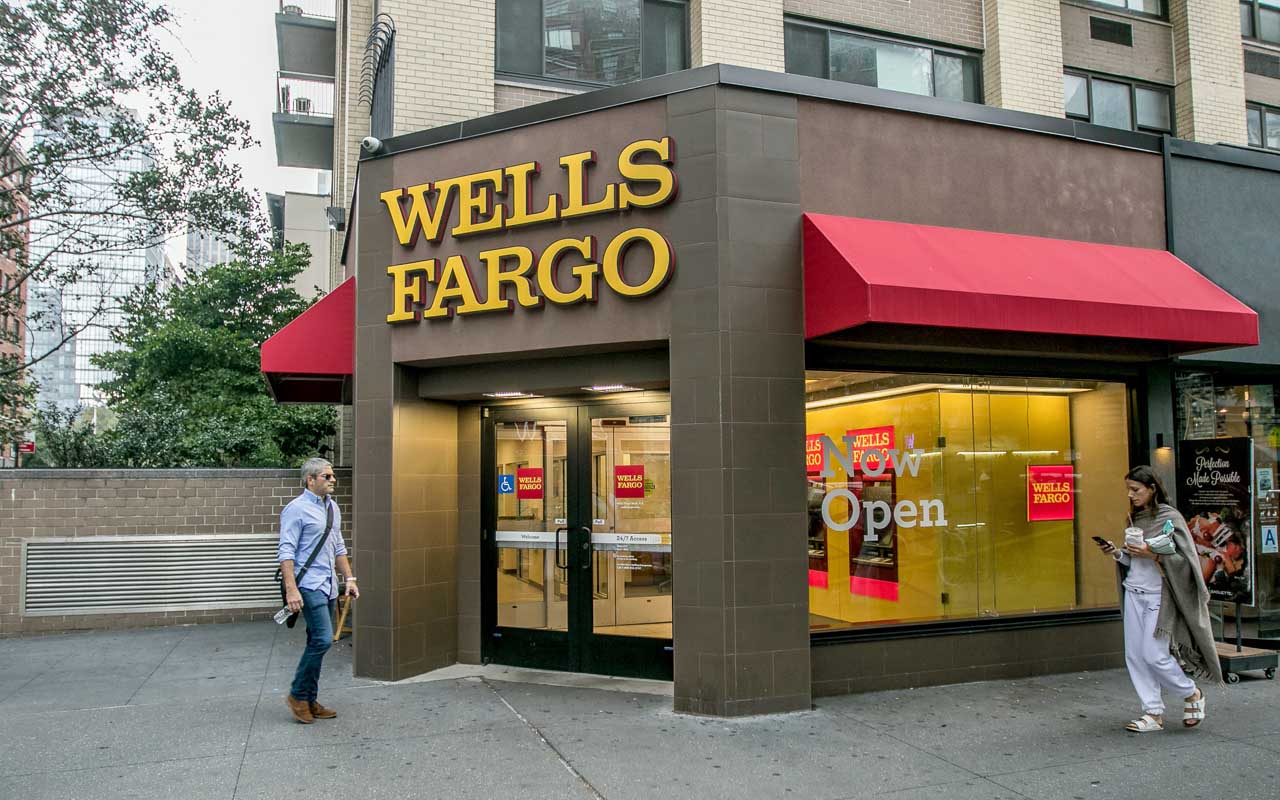
Wells Fargo
- Dividend yield: 4.0%
- Forward P/E: 9.2
- Wells Fargo (WFC, $45.21) is easily among the most troubled Buffett stocks, but Uncle Warren has long been faithful to this bank. Buffett initiated his position back in 2001, and he’s stuck by the nation’s third-largest bank by assets despite a spate of scandals. Indeed, BRK.B remains WFC’s largest shareholder with 9.8% of all shares outstanding.
Opening phony accounts, modifying mortgages without authorization and charging customers for auto insurance they did not need are just some of the bad news WFC investors have had to contend with since 2016.
“If you look at Wells, through this whole thing they’re uncovering a whole lot of problems, but they aren’t losing any customers to speak of,” Buffett told Financial Times in an April interview.
On the bright side, headline risk -- and extra scrutiny from federal regulators -- has kept WFC stock cheap. Shares trade at just 9.2 times expected earnings. That’s 25% below their own five-year average and 47% less expensive than the S&P 500.
The dividend yield of 4.0% only sweetens the pot. Analysts forecast WFC to deliver average profit growth of 8.5% a year over the next five years.
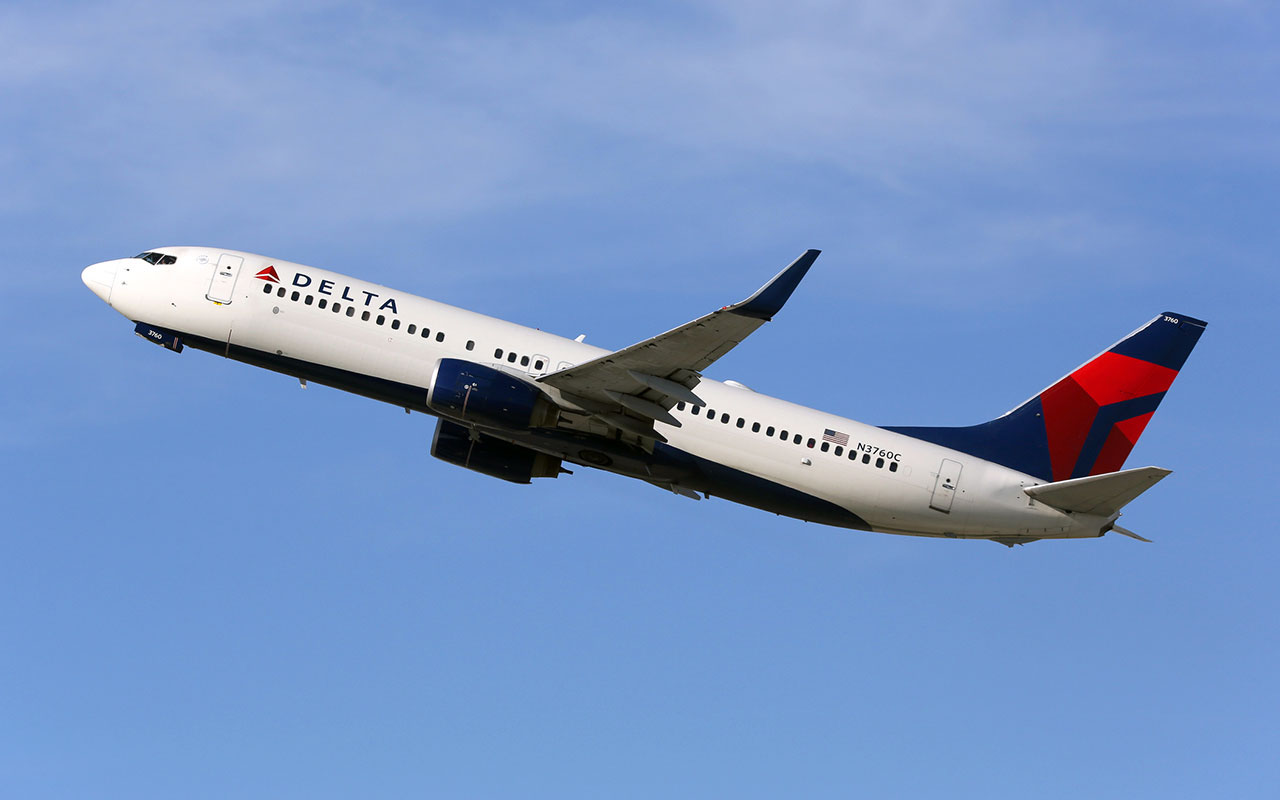
Delta Air Lines
- Dividend yield: 2.6%
- Forward P/E: 8.3
- Delta Air Lines (DAL, $62.25) was one of the four major airline stocks Buffett bought in 2016, much to the market’s surprise. After all, this is the man who once wrote: “If a capitalist had been present at Kitty Hawk back in the early 1900s he should’ve shot Orville Wright; he would have saved his progeny money.”
He sure does love his airline stocks now, though. Berkshire Hathaway raised its stake in DAL by 8%, or 5.4 million shares, during the first quarter of 2019. In fact, the holding company is now Delta’s largest shareholder, owning 10.8% of the carrier’s shares outstanding.
The air carriers also are among the cheapest stocks in the BRK.B portfolio. In the case of Delta, shares change hands at just 8.3 times expected earnings. That’s almost 5% below their own five-year average forward P/E, and 52% cheaper than the S&P 500.
Analysts forecast average annual earnings growth of 14.3% over the next five years. They’re also pretty bullish as a whole. Of the 21 analysts covering DAL tracked by Refinitiv, seven call it a Strong Buy, eight have it at Buy and six say it’s a Hold.
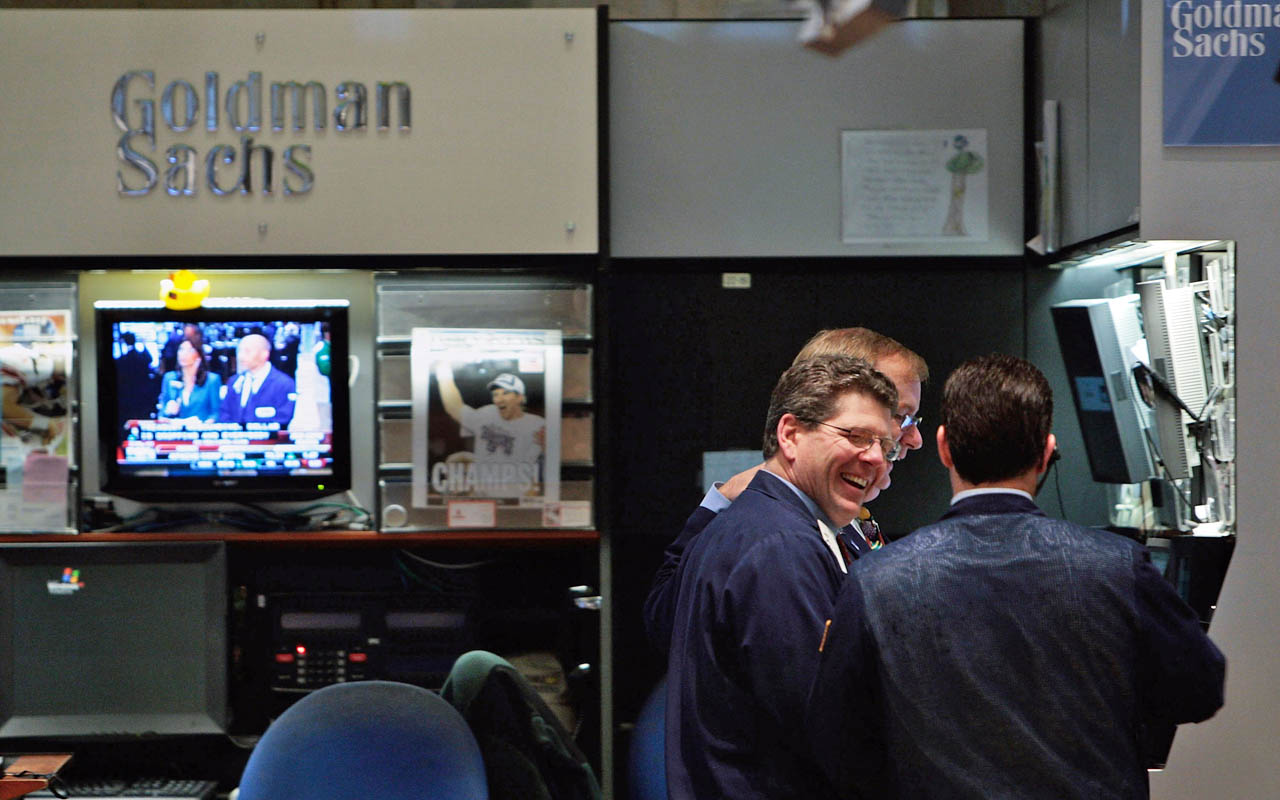
Goldman Sachs
- Dividend yield: 1.6%
- Forward P/E: 8.3
Warren Buffett threw a lifeline to Goldman Sachs (GS, $213.30) during the 2008 financial crisis.
Berkshire Hathaway paid $5 billion for preferred shares and warrants to purchase common stock. The preferred shares carried a dividend yield of 10% – almost twice the rate of some preferred stocks, which already are considered generous income plays. Goldman redeemed its preferred shares in 2011. Berkshire bought another $2 billion in GS stock when it exercised the warrants in 2013.
GS stock has lagged the performance of the broader market since BRK.B exercised its warrants in Q4 2013, but that’s also helped keep the valuation in check. With a forward P/E of 8.3%, Goldman Sachs’ stock offers a 21% discount to its own five-year average. GS also is 52% cheaper than the S&P 500 by forward P/E.
Analysts’ average recommendation on GS stock is Buy. Buffett sure is glad he did. He parlayed Berkshire’s original investment into a 5% stake in Wall Street’s preeminent investment bank, now worth $3.9 billion.
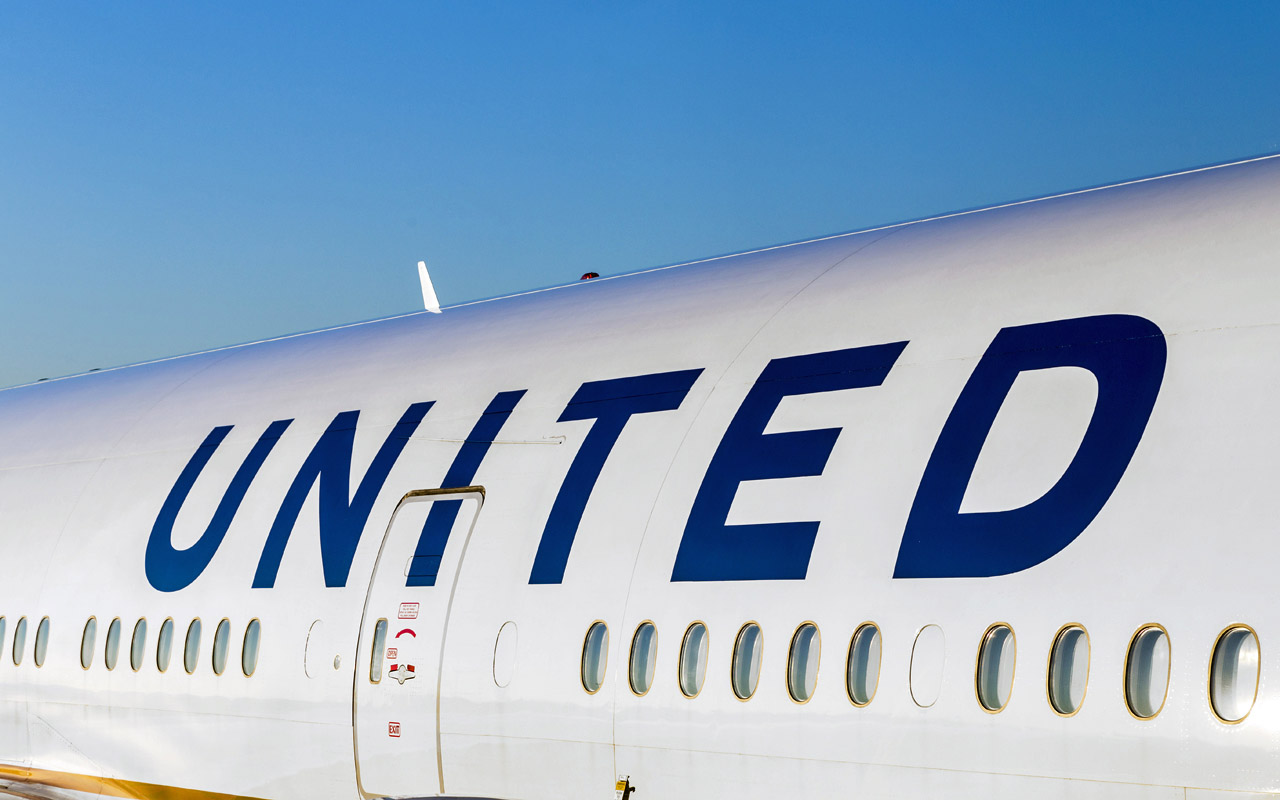
United Continental
- Dividend yield: N/A
- Forward P/E: 7.7
Buffett first bought United Continental (UAL, $94.78) in 2016 when he made his surprising volte-face in regard to the airline industry. Buffett long excoriated the sector, calling it a “death trap” for investors.
The timing, in United’s case, could have been better.
Less than a year after Berkshire staked its claim in UAL, a United passenger was injured while being removed against his will from a sold-out flight. The video of the incident went viral, naturally.
The big picture with airline stocks, Buffett says, is that carriers today offer much better growth prospects than they did in the previous century, which was a bloodbath for invested capital. Airlines also tend to be compellingly priced. In UAL’s case, shares trade almost 4% below their own five-year average forward price-to-earnings multiple. UAL is a whopping 55% cheaper than the S&P 500 by forward P/E.
Berkshire Hathaway’s portfolio holds 8.3% of UAL shares outstanding, making it the airline’s second-largest shareholder.

Synchrony Financial
- Dividend yield: 2.3%
- Forward P/E: 7.6
- Synchrony Financial (SYF, $35.54), a major issuer of charge cards for retailers, was spun off of GE Capital in 2014. It’s both a lender and a payments processor – like another Buffett stock, American Express (AXP) – but it caters to customers who skew more toward the middle and lower end of the income scale.
But SYF doesn’t jibe only with Buffett’s affection for credit-card companies and banks. It also appeals to his keen love of a bargain. Today, SYF trades at a 26% discount to its own five-year average forward P/E. It’s 56% cheaper than the S&P 500.
Berkshire initiated a position in SYF during the second quarter of 2017, paying an estimated price per share of $30.02. It’s up more than 18% from that level, and that’s before including dividends.
Analysts forecast SYF to deliver average annual earnings growth of 16.5% over the next half-decade, according to Refinitiv data.

General Motors
- Dividend yield: 3.9%
- Forward P/E: 6.3
- General Motors (GM, $39.16), the world’s fourth-largest auto manufacturer by production, has been a Berkshire portfolio holding since early 2012. Buffett enjoyed the ride higher so much that he boosted his position by 37% in Q4 2018; he now owns more than 5% of the car company.
GM is as traditional a Buffett holding as it gets. It’s the top American automaker and thus a bet on the long-term growth of the U.S. economy. And it’s also a true value play – in fact, right now, it’s the second-cheapest stock in the Berkshire Hathaway portfolio, by forward P/E.
Shares currently trade at a little more than six times future earnings – a small discount to its own five-year average – but the question is: What exactly are you buying? For one, you’re getting a juicy dividend yield of 3.9%. That’s twice what the S&P 500 offers. And despite the fact America is past “peak auto,” analysts still see the company growing profits by 15.3% annually over the next five years.
Readers will no doubt be inundated with headlines about a relatively radical redesign to the Corvette. GM’s Chevy division is switching to a mid-engine model amid lagging sales for the classic sports car. But remember: Crossovers, SUVs, and pickups are the company’s bread and butter, so that’s the area of the business to keep the most focus on.
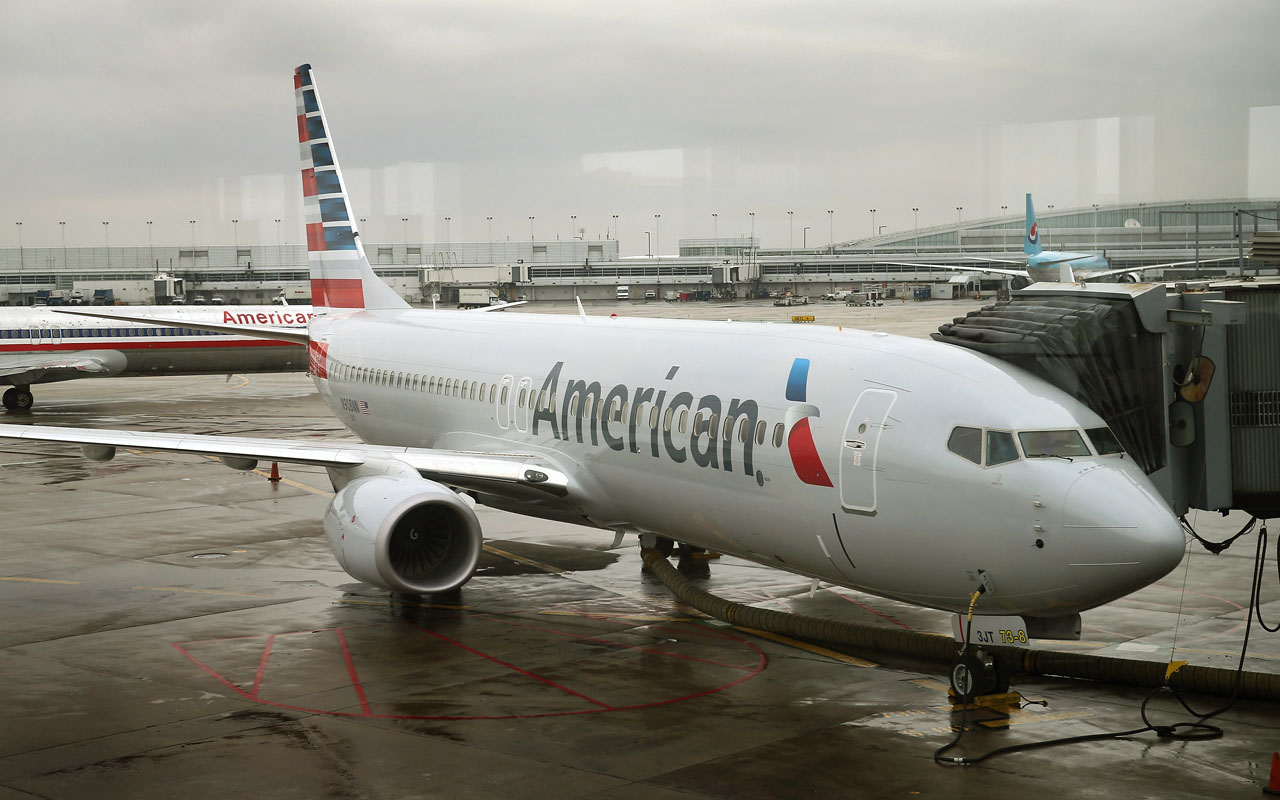
American Airlines
- Dividend yield: 1.2%
- Forward P/E: 5.7
As mentioned repeatedly, Buffett became an airline-stock convert in 2016, when he began taking stakes in four major U.S. carriers, among them American Airlines (AAL, $33.26).
American Airlines, unfortunately, hasn’t done much for the Oracle of Omaha, who first bought shares during the third quarter of 2016. Since the start of Q4 of that year, AAL shares have delivered a loss of 9% – or less than 7% once you factor in the airline’s small dividend. That includes a 35% drop since 2018 spurred by a host of issues, including fuel prices, labor costs and the grounding of Boeing’s (BA) 737 Max aircraft in the wake of a deadly Ethiopian Airlines crash.
On the other hand, the share-price decline has put AAL well into value territory.
The stock trades at less than six times forward earnings – a 64% discount to the S&P 500, and an 11% discount to its own five-year average. Not bad, considering that the analyst community thinks the airline is ready to reverse its fortunes. They’re projecting 16.3% average annual profit growth over the next half-decade.
Profit and prosper with the best of Kiplinger's advice on investing, taxes, retirement, personal finance and much more. Delivered daily. Enter your email in the box and click Sign Me Up.

Dan Burrows is Kiplinger's senior investing writer, having joined the publication full time in 2016.
A long-time financial journalist, Dan is a veteran of MarketWatch, CBS MoneyWatch, SmartMoney, InvestorPlace, DailyFinance and other tier 1 national publications. He has written for The Wall Street Journal, Bloomberg and Consumer Reports and his stories have appeared in the New York Daily News, the San Jose Mercury News and Investor's Business Daily, among many other outlets. As a senior writer at AOL's DailyFinance, Dan reported market news from the floor of the New York Stock Exchange.
Once upon a time – before his days as a financial reporter and assistant financial editor at legendary fashion trade paper Women's Wear Daily – Dan worked for Spy magazine, scribbled away at Time Inc. and contributed to Maxim magazine back when lad mags were a thing. He's also written for Esquire magazine's Dubious Achievements Awards.
In his current role at Kiplinger, Dan writes about markets and macroeconomics.
Dan holds a bachelor's degree from Oberlin College and a master's degree from Columbia University.
Disclosure: Dan does not trade individual stocks or securities. He is eternally long the U.S equity market, primarily through tax-advantaged accounts.
-
 The New Reality for Entertainment
The New Reality for EntertainmentThe Kiplinger Letter The entertainment industry is shifting as movie and TV companies face fierce competition, fight for attention and cope with artificial intelligence.
-
 Stocks Sink With Alphabet, Bitcoin: Stock Market Today
Stocks Sink With Alphabet, Bitcoin: Stock Market TodayA dismal round of jobs data did little to lift sentiment on Thursday.
-
 Betting on Super Bowl 2026? New IRS Tax Changes Could Cost You
Betting on Super Bowl 2026? New IRS Tax Changes Could Cost YouTaxable Income When Super Bowl LX hype fades, some fans may be surprised to learn that sports betting tax rules have shifted.
-
 The Most Tax-Friendly States for Investing in 2025 (Hint: There Are Two)
The Most Tax-Friendly States for Investing in 2025 (Hint: There Are Two)State Taxes Living in one of these places could lower your 2025 investment taxes — especially if you invest in real estate.
-
 The 24 Cheapest Places To Retire in the US
The 24 Cheapest Places To Retire in the USWhen you're trying to balance a fixed income with an enjoyable retirement, the cost of living is a crucial factor to consider. Is your city the best?
-
 The Best Financial Stocks to Buy
The Best Financial Stocks to BuyFinancial stocks play a critical role in the economy and are a key component of any well-rounded portfolio.
-
 Stock Market Today: Spiking Treasury Yields Keep Pressure on Stocks
Stock Market Today: Spiking Treasury Yields Keep Pressure on StocksStronger-than-expected September retail sales sent government bond yields back toward recent highs.
-
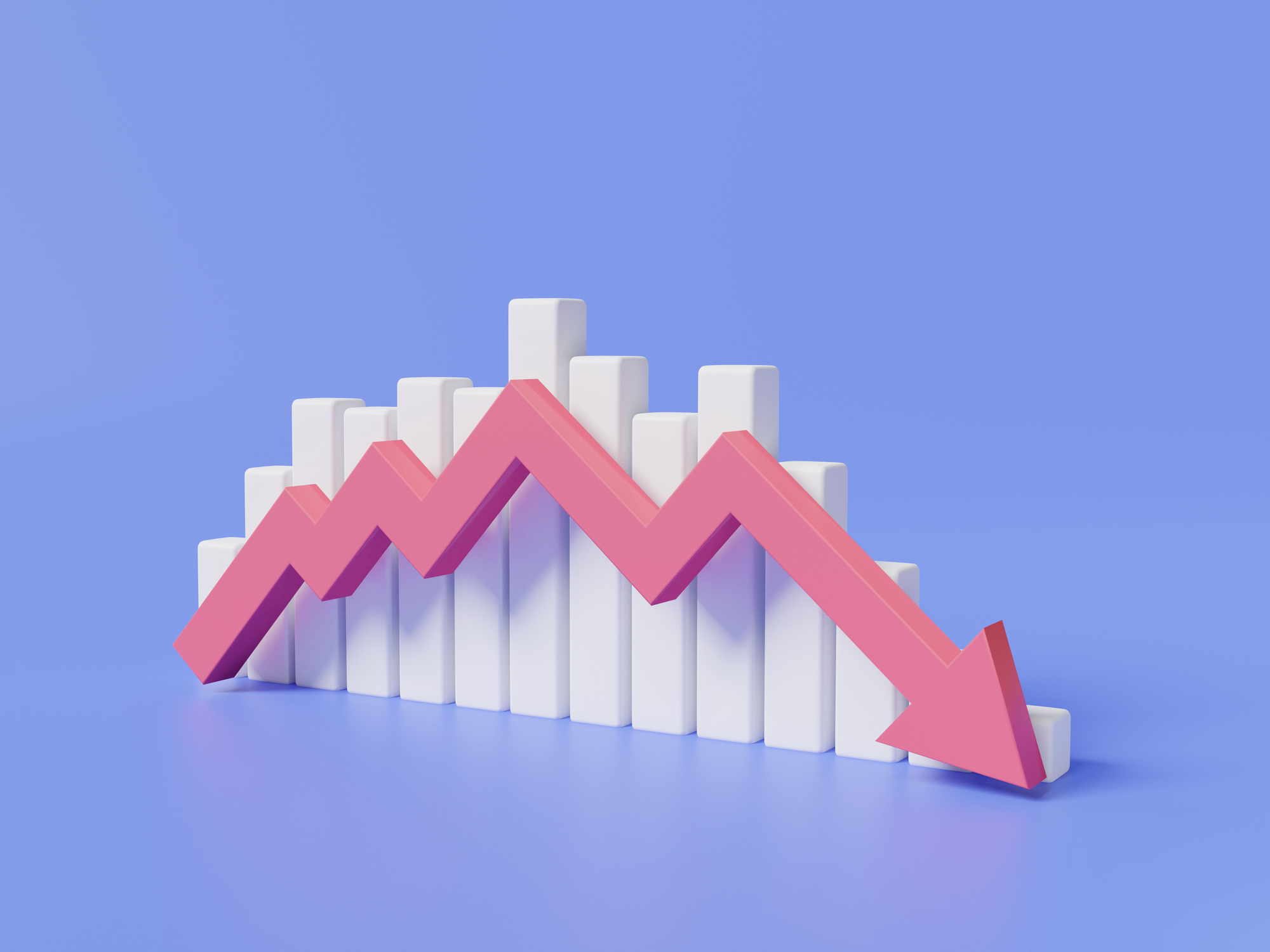 Stock Market Today: Stocks Drop on Troubling China Data, Bank Ratings Worries
Stock Market Today: Stocks Drop on Troubling China Data, Bank Ratings WorriesThe main benchmarks fell Tuesday, but healthcare stocks outperformed as Eli Lilly and Novo Nordisk surged.
-
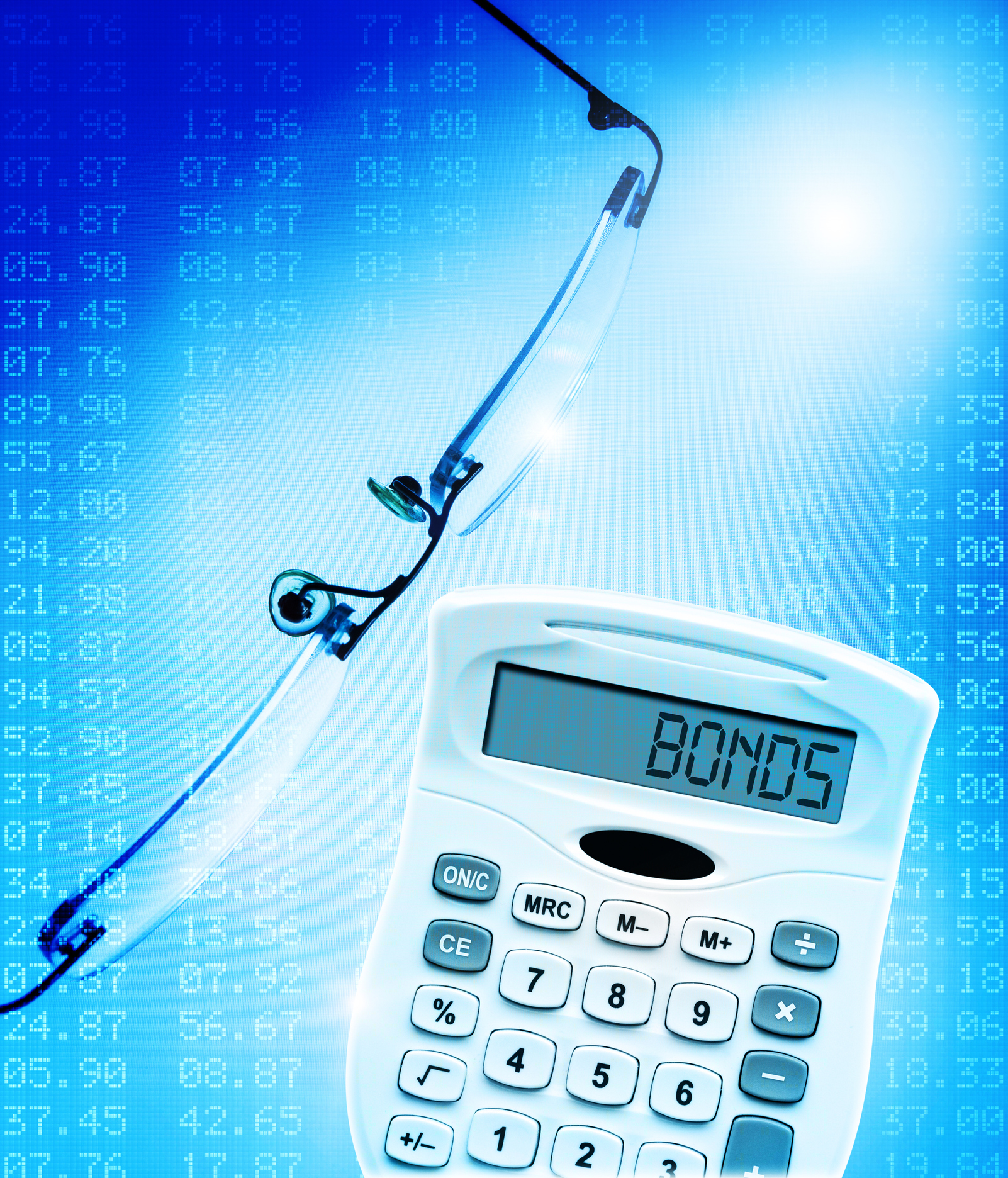 Bond Basics: Zero-Coupon Bonds
Bond Basics: Zero-Coupon Bondsinvesting These investments are attractive only to a select few. Find out if they're right for you.
-
 Bond Basics: How to Reduce the Risks
Bond Basics: How to Reduce the Risksinvesting Bonds have risks you won't find in other types of investments. Find out how to spot risky bonds and how to avoid them.
-
 What's the Difference Between a Bond's Price and Value?
What's the Difference Between a Bond's Price and Value?bonds Bonds are complex. Learning about how to trade them is as important as why to trade them.
